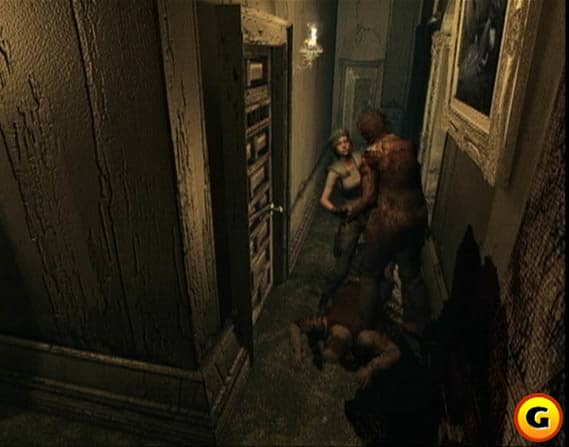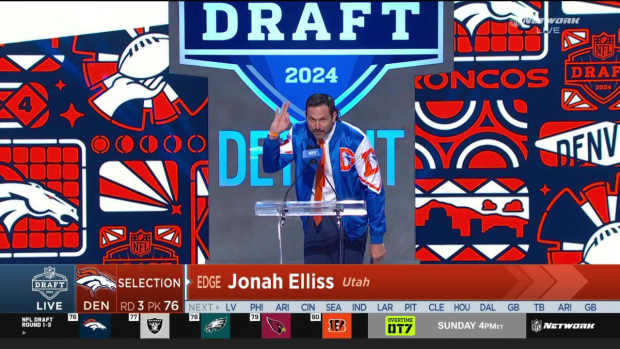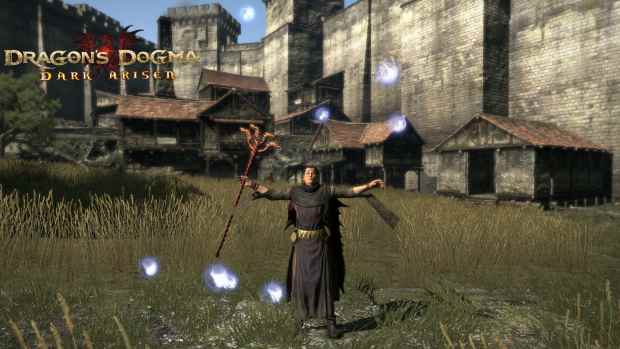A Line Drawn in Blood: Survival Horror vs. Action Horror

The creators of Resident Evil coined the term survival horror to describe its gameplay. Has Resident Evil lost its way?
Capcom
The debate about where to draw the line between survival horror and action horror has been going on for years, at least since the release of Resident Evil 4 in 2005 when the genre's flagship franchise took an abrupt turn in the direction of gun-heavy action. Since that time, a lot of game afficianados have been concerned about the potential demise of the survival horror genre. One well known game reviewer has even implied that big studios can no longer make survival horror.
This broad perception among gamers and reviewers that the existence of the genre is threatened, validated by the poverty of good survival horror experiences in recent years (with a couple of very notable exceptions like Amnesia and Lone Survivor) has led to a bit of a nostalgic back-lash. At least one prominent game developer has claimed that he is interested in getting back to his roots and is making a return to the genre that big publishers have increasingly viewed as a diminishing niche market.
But in order for this return to form to be successful, developers have to know what it is that players are referring when they talk about survival horror. Although the recent slew of horror titles have been fairly successful commercially (Resident Evil, Dead Space, Dead Island, Left 4 Dead, etc.) there is a lot of debate about whether or not any of these titles really provide the experience that survival horror fans are after. Is there an easy way for developers, players, and reviewers to determine whether a particular game falls into one category or another? A convenient metric we can use to settle these debates once and for all?
Although I think it's unrealistic to expect that there ever will be a formal way to define the differences between these genres or to completely satisfy every horror fan with the classification of every game, I do believe that there are a couple of dominant traits that are easy to identify and that do more than anything else to define the genre. In fact, I think we can learn everything we need to know by looking at the term 'survival horror' itself.

Haunting Ground places a heavy emphasis on avoiding combat and makes excellent use of a mechanic pioneered by Clock Tower.
Capcom
Survival
The first part of our definition depends on the term 'survival', and it is this part of our explanation that is critical for understanding the difference between titles that are typically classified as survival horror, and those that are typically cast as action horror.
It seems clear to most people that gameplay is a deciding factor in this debate about the classification of certain games, but it isn't always clear what specific mechanics influence that decision. Players often refer to the clunky, 'tank'-like controls that are prevalent in the survival horror genre, or to the need to ration ammunition and health; others point to the protagonist's relative competence or combat ability as a metric for determining the game's classification. The argument generally goes that smooth, intuitive controls + a combat-ready protagonist = an action horror game and is decidedly not a formula for survival horror. (Though some might hedge and classify the game as survival horror if the player is required to strictly ration ammunition and health.)
While this ad hoc method of classifying games comes close to the mark, I think it is possible to improve upon it.
First of all, I do not believe that clunky, 'tank' controls are a requirement of the genre. This has more to do with the weight that developers assign to different areas of design and acculturation within the genre than anything else. Indeed, many stalwart fans of the genre have complained about the controls over the years, not because they want their characters to be more powerful, but because unresponsive controls often seem like an artificial means of creating tension, a sort of 'cheap shot' that creates frustration rather than horror.
Second, I do not believe that the combat training of the protagonist has any bearing on whether or not a game should be considered survival horror. The mere fact that a character is capable of kicking ordinary ass should be irrelevant when it comes to dealing with supernatural and monstrous beings. No one disputes the horror of the Vietnam War -- certainly not the soldiers who fought in it -- and there are few classes of people better qualified for close quarters combat than infantry soldiers. The potential for horror, then, isn't determined by your readiness and ability to engage in combat, but by other, remoter factors.
Third, rationing ammunition and health is a characteristic common to many action games, not just survival horror, so it can only be considered as a very weak metric for classifying games in this genre.
A Random Sample
So how can we define 'survival' as a game mechanic in a way that doesn't depend on artificially handicapped controls, rationed ammunition and health, and a 'weak' protagonist?
I think the easiest way to explain the difference between survival horror game mechanics and action horror game mechanics is through the use of a formula. In a survival horror game,
flight > fight
In other words, from a game mechanics perspective, fleeing enemies is, by and large and over the course of the game, a better and/or more effective strategy for completing game objectives than confronting enemies. In a survival horror game, when faced with an enemy, the player is more likely to run than to engage in conflict.
This is the sort of thing that can be quantified to a certain degree as well. If there are more enemies than bullets, it's easy to see that avoiding combat is going to be required at least for part of the time. In a well designed game, there will be peaks and valleys in the number and strength of enemies and variation in how easy and difficult it is to avoid them; in some areas, conflict will be almost unavoidable. Most players will be aware of the potential for this kind of bottleneck and plan accordingly by conserving ammunition and health early in the game. (The developers may make provisions for certain areas where conflict is inevitable (eg. boss fights) but, by and large, there just isn't enough ammunition in the game to kill every enemy.) If, after a few attempts, the player finds that he can't defeat enemies through confrontation, he will naturally begin to avoid them.
It isn't necessary to frame the mechanic in terms of bullets and headshots, of course. Players may have enough bullets to dispense with enemies, but lack the speed or health to survive frequent encounters; or, bullets may take enemies down, but not keep them down permanently, so that at some point the player will run out of ammunition and be forced to flee.

Dead Space's classification as a survival horror title created a lot of debate about what is and is not essential to the genre.
Electronic Arts

In spite of hefty doses of horror and a pressing need for survival, I wouldn't classify Left 4 Dead as a survival horror.
Valve Corporation
This principle needs to apply to other areas of the game design as well. Some mechanics, like sneaking and using environmental hazards, can be employed in the same way as ammunition to effectively neutralize opponents. If the player is always able to successfully avoid being detected by enemies, the player will feel no more vulnerable than they do if they have adequate supplies of ammunition. If they can always neutralize an opponent by leading them into a trap or using the environment against them, it similarly becomes a substitute for ammunition. In both of these cases, the player never has to flee from an enemy. It might be appropriate to call such hypothetical game designs 'stealth horror' and 'puzzle horror' in keeping with 'action horror'.
The key to the flight > fight equation is that there is always at least one enemy in the environment that can't be permanently neutralized by the player's actions, and that enemy always has some way to discover the player. (Typically, because the player has to leave their hiding spot at some point to progress further through the game.)
In this kind of scenario, the player is always at risk. It is only in these kinds of situations that the player can ever truly feel vulnerable and the necessary tension maintained. (This discussion excludes the use of 'safe rooms' which are designed to allow the player to relax and recharge and which are required for pacing and saving game progress.)

Condemned 2: Bloodshot combines visceral combat with horror themes and stands on the boundary between action and survival horror.
Sega

Dead Island mixes action, horror, and role-playing and it's not always easy to tell which element dominates.
Deep Silver
A few quick examples of this theory in practice should suffice to show how the flight > fight heuristic can be used to quickly determine how a game should be classified and whether or not players will consider it a legitimate addition to the genre. (There will always be borderline cases.)
In games like Dead Space, FEAR, Doom 3, The Suffering, Left 4 Dead, Dead Rising, and the later Resident Evil games, there is little or no incentive to avoid conflict. In many of these games, it's not even possible to avoid it. In environments where there is no practical way to flee the enemy, or where fleeing enemies is more difficult than confronting them, flight is just not an effective strategy for beating the game. This doesn't mean that you don't have to be careful about your ammunition, or that the combat isn't challenging, only that the most effective strategy is the same as it is in any other action game: eliminate your enemies.
Much of the confusion in the minds of both developers and players over whether or not these games qualify as survival horror stems from the ambiguous way that the term 'survival' can be interpreted: in all of these games, survival is, indeed, the name of the game. The catch is that combat is also the only meaningful strategy. This unilateral shift from evasion to confrontation has a significant impact on the tone of the game and consequently the player's psychological approach to playing it. Very few people would argue that games like Clock Tower, Amnesia, and Haunting Ground are not survival horror, but even fewer people would compare the gameplay in these games to Dead Space, FEAR, or Left 4 Dead.
Dead Island is a good example of a game that provides a middle ground between action and survival horror when played in single-player mode. Although there are plenty of makeshift weapons lying around and your character has some combat training or athletic ability, the combat is challenging enough that you will frequently want to avoid it. Additionally, because Dead Island is an open world game, it is often possible to use this as an effective strategy. I still think it qualifies as an action horror title, however, for the simple reason that the game provides you with a very strong incentive for defeating enemies: experience points.
Condemned is another series that straddles the border between action and survival horror. Combat in the Condemned series is challenging enough to make it a constant source of stress, and numerous thematic and gameplay elements further solidify its connection to traditional survival horror. What disqualifies it (in my opinion) is the fact that it is rarely possible to avoid combat. The result is that I feel Condemned is more terrifying than horrifying.

The Fatal Frame series has always been a pillar of the survival horror gaming community. Fatal Frame is an example of a game that finds a perfect balance between gameplay and atmosphere.
Tecmo
In games like Amnesia, Siren, Haunting Ground, Rule of Rose and Clock Tower, there is little or no incentive to engage in conflict, and in some of these games it's not even possible. In games where confronting enemies is more difficult than avoiding them, flight is a more effective strategy for beating the game. There may be situations (eg. boss battles) where avoiding combat is impossible, but, by and large, these situations are the exception rather than the rule in survival horror games.
Fatal Frame is a good example of a borderline case in this instance. 'Combat' in Fatal Frame (using the camera) is fairly difficult to master, which makes it an expensive strategy but it is often almost unavoidable. In addition, the player is rewarded for engaging in combat in the form of screenshots added to their journal. As a large portion of the game revolves around exploration and puzzle solving, and enemies can often be avoided, evasion still tends to be the best strategy.
Notice that the flight > fight classification avoids the problem of the 'powerful protagonist'. By this metric, the relative strength of the protagonist is irrelevant. If the player cannot neutralize all of the enemies in an environment, and is forced to rely on flight more often than combat, it should be classified as a survival horror.

Combat in Rule of Rose is similar, in some ways to combat in Silent Hill. It's generally better to avoid it.
Atlus/Sony Computer Entertainment

Siren employs a number of innovations and is famous both for it's intense horror and extreme difficulty.
Sony Computer Entertainment
Horror
The second part of our definition depends upon the word 'horror'. It is not enough for a game to employ a flight > fight mechanic, the game must also contain thematic elements of horror. These thematic elements are well-known: blood and gore, darkness, decay, impurity and insanity, images of death and disease, the distortion of nature and the intrusion of the supernatural, and religious symbols are all part of the idiom employed by both survival and action horror over the years.
In fact, it is the presence of these various thematic elements which leads to confusion when attempting to classify games as belonging to one genre or another. If a game contains all of these elements, and requires the player to ration ammunition and health, the argument goes, should it not be classified as a survival horror game? I don't believe that it should for the simple reason that traditional action games without horror elements also require rationing and defensive gameplay. What distinguishes an action horror game from a survival horror game is the additional requirement of a flight > fight mechanic that rewards evasion over confrontation. (An interesting comparison may be drawn to the first Max Payne: Max Payne's narrative is steeped in corruption, decay, insanity, darkness, and religious symbols. Combat also requires the player to be conservative with ammo and health. The primary factors which discount it from consideration as a horror title are its gameplay -- combat is your only option -- and the absence of the supernatural or aberrations of nature.)
If it's the case that the presence of a flight > fight mechanic is sufficient for distinguishing between action horror and survival horror, it might seem as if the second half of our definition, the requirement for horror themes, is redundant. If the flight > fight equation alone is sufficient for distinguishing between survival horror and action horror, why bother with thematic content at all?
This additional requirement is necessary because there are also games that employ a flight > fight mechanic that do not involve horror themes. Mirror's Edge strongly rewards flight over fight, and, with the exception of a few boss encounters, it is by far the best strategy for completing the game; but the game is completely devoid of horror themes, so playing it never feels horrific. The peculiar tension created by Mirror's Edge, the feeling of being prey and running for your life, is better described as fear or anxiety, the kind that is produced by any good thriller.

Amnesia: The Dark Descent is seen by many people as a true return to form of the survival horror genre.
Frictional Games

Lone Survivor looks to be another return to form. I can't really comment, though, as I haven't had a chance to play it yet.
Superflat Games
Putting the Survival Back Into Horror
Hopefully, this discussion, as brief as it is, helps to clarify some of the issues surrounding the classification debate, and illuminates some of the key game mechanics required for creating and maintaining a state of horror. Certainly other elements are important; I haven't touched upon sound design, lighting, the emphasis on strong narratives, puzzle solving, an introspective or psychological outlook, the presence of supernatural or unnatural themes, confinement or isolation at all, but they are important elements found in most survival horror games. (Excessive amounts of blood and gore and horde-like AI behavior are also important elements of action horror.) While all of these elements are important and deserve their own place in a full discussion, I do not believe that any of these elements on their own are sufficient for resolving debates about how a game should be classified.
I would like to emphasize that, in spite of everything that I've said in this article, I do not believe in hard and fast classifications: games don't have to fit nicely into one category or another to be successful, and in fact, it is probably better if they don't. But understanding what makes a survival horror game different from an action horror game is important if your intention is to satisfy a particular market of gamers. It is also instructive, because it reminds us that there is more than one way to create challenge and suspense, more than one way to create horror, and more than one way to satisfy players. Action and survival don't have to be mutually exclusive, and many interesting combinations are no doubt waiting to be discovered, but adding horror themes to an action game does not magically transform it into survival horror.
I would also like to emphasize that my classifications do not reflect a quality bias. I do not believe that survival horror games are better than action horror games or vice versa. I love survival horror games, but I love action horror just as much. Action horror, I believe, has identified a key element of survival horror games -- challenging combat -- and elaborated on that element with tremendous ingenuity and finesse. Action horror is, in a sense, fantasy horror; it allows you to test your metal against the forces of evil in a direct and visceral way that would be impossible as an ordinary man or woman. And that, to me, is a meaningful and worthwhile evolutionary branch. It would be a shame if, after discovering such sweet fruit, developers allowed it to rot on the vine in their efforts to unearth their roots.
Additional Reading
Chris' Survival Horror Quest - If you're a survival horror fan you need to bookmark this site. It's a treasure trove of critical and insightful game analysis.
A couple of recent articles by Nick Masercola on Gamasutra:
- Crafting a Monster: Guidelines for Survival Horror Combat
- Why Silent Hill: Downpour's Opening is a Poor Tutorial (I've run out of links, but it can be found in his blog)
Tomas Grip of Friction Games (Penumbra, Amnesia):
Brian Campbell's insightful article at The Escapist about the relationship between scarcity and horror:
- Trail of Fears (I've run out of links, but it's worth looking up)
How Do You Prefer to be Horrified?
Comments
BRANDON Leavitt from hellevoetsluis on October 05, 2020:
Wall played Horror VS action for me,,.it the actions of the player
but not base? on layout of the games Actions., but more on your own skills!
to the test see Survival. is more thin foot of Action on the field
it is the test./ of mind more you bring to the field! the laser risk...
like i say good minds think alike? or like catchphrases of muhammad ali.. float like a butterfly sting like a bee .Ps. have a super day
Zeron87 on July 20, 2015:
Very awesome hub man. Like you, I also believe that Action Horror is as vital a genre as Survival Horror; it's just that developers/publishers believe Action Horror has more potential to sell these days than Survival Horror, what the fans say they want more of.
Something I was curious about though:
I see you mention several times how the rationing of bullets and health isn't integral to S.H. (Survival Horror), but the fight/flight option. However, doesn't deciding when to use your limited resources on healing or dispatching monsters CREATE the fight/flight option available in S.H? Of course, if you're not using ammo to begin with (Fatal Frame), then you'll more likely choose flight over fight, but limiting resources in a game will, I'd argue always, create a Survival situation, and if you add Horror elements to the mix, you have a Survival Horror game every time ^_^.
j-u-i-c-e (author) from Waterloo, On on May 07, 2012:
That's why I called action horror 'fantasy horror', not in the sense of elves and dragons, but in the sense of wish fulfillment. It takes one experience, the satisfaction of defeating a powerful and frightening enemy, and creates a whole game around it so you can have that experience over and over again. It's 20+ hours of "Hail to the king, baby!". That doesn't mean that it isn't frightening, just that it creates a different type of tension, closer to excitement than horror. (Interesting aside: The Aliens movie franchise follows a similar evolution from survival horror to action horror.)
I think it's because most people are not good at handling uncertainty and vulnerability. They like to be in control and action horror gives them that control. It's a way for people who like horror to enjoy the thematic elements without experiencing the anxiety and doubt associated with the more cerebral kind of horror. Most people want to relive triumphing over evil again and again, not being at the mercy of it. Like I said in the article, I enjoy both genres, so I don't see anything wrong with that, they're just different gameplay experiences, like the difference between turn-based RPGs and action RPGs. Satisfying for different reasons.
For the record, an open world survival horror using the elements you've mentioned (dehydration, starvation, exposure, disease, insanity) would be a very powerful and effective experience, though it would be very hard to create and sustain.
Thanks for reading and sharing your insights.
John Roberts from South Yorkshire, England on May 06, 2012:
Totally agree here, and in my opinion, I can't stand to look at the blurb of a game to find if the developers don't know what genre they're making. And the keyword for me is horror - Dead Rising isn't "horrific", it's laughable. Next. Dead Island is an RPG that didn't need zombies, and there's no sense of fear. Next. Left 4 Dead? Forget it. Next. I could do this all day, though it's not going to do much here.
When making a Survival Horror game, consider two pieces of Media: Max Brooks' Zombie SURVIVAL guide, and Amnesia: The Dark Descent. Max Brooks states how to survive the zombie apocalypse, and also has chapters on taking up action. To survive is to do anything, eat your own limbs to survive, NOT take a chainsaw and kill your way out of the area, which would be "to take ACTION".
Developers are trying to reach two different audiences, but this also takes out the "horror" if you're going for the action too. Games like F.E.A.R have proven this (though I will say it's pretty scary at times), and Condemned (same as fear, it can get scary). But when combat is too easy, there's difficulty settings from easy to absolute wuss mode, you're removing the fear. Immediately having a gun reduces all elements of fear. I'm armed, ready and I'm not scared of Jack.
But just because I'm armed and have plenty of ammo (i.e Dead Space), doesn't make the game friendly. It can be pant-pooping scary, much like Shellshock 2 with its lumbering and sprinting zombies. It's a game of survival including diseases, hydration, hunger and sanity - plus, ammo is low and enemies take a lot of hits.
When making survival horror, consider the survival. What must I do to survive? I can't heal wounds or stay sane by killing millions. Having a gun does not prevent me from going hungry. When bringing thirst and malnutrition into the game, consider food and buffs - the more hydrated/full you are, the better your aim, or sprint speed, etc. Sanity could be restored from taking medicines, reading, humming tunes to one-self, cracking jokes to the party....
When making action, do what you want: it's not as if anybody cares about lighting or dialogue (proven by Monster Hunter or Daemon Summoner on the PS2). It's just a mod for another and much more successful game. Besides Resi 4 - that kicked ass!
Voted up, useful, awesome and interesting ^^










